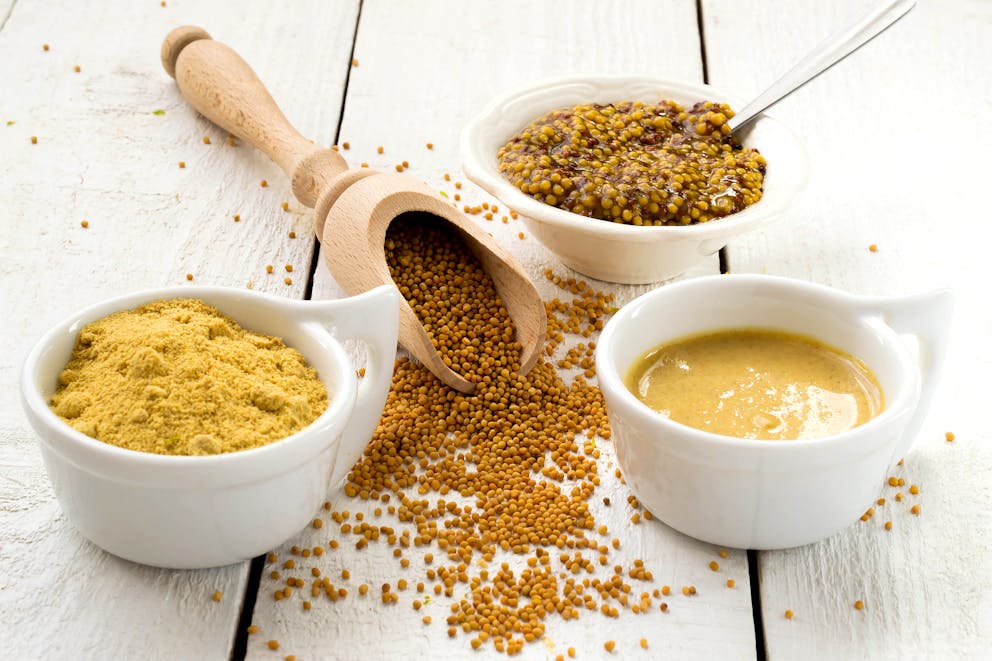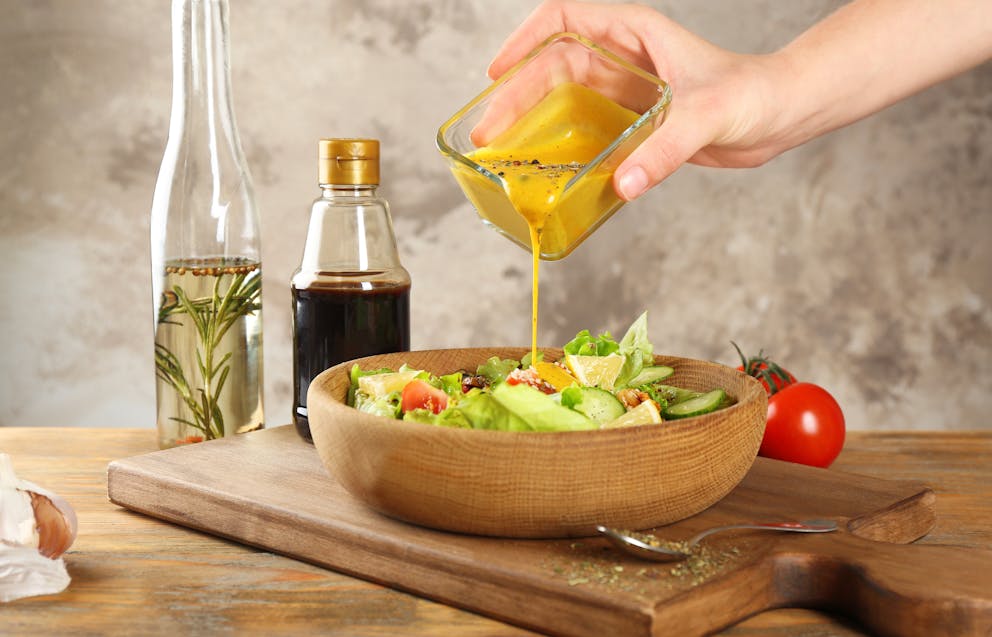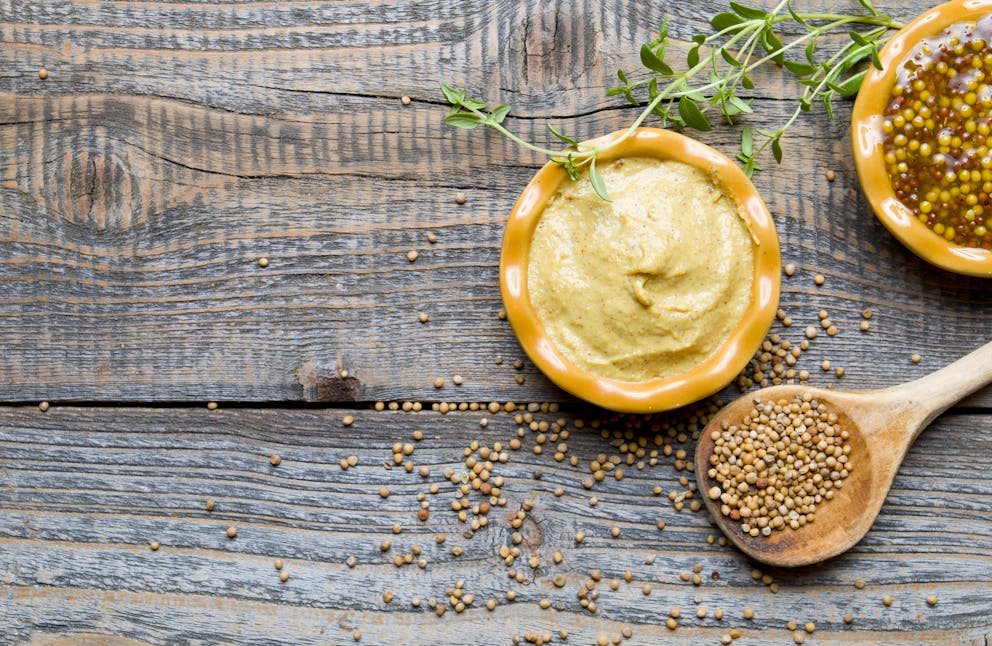4 Unique Health Benefits of Mustard

4 Dangerous Ingredients to Avoid – Wallet Cutout Card
Identify harmful ingredients hidden in processed foods
Learn to recognize and identify these ingredients on food labels
Get a practical wallet cutout for quick reference while shopping or dining out

4 Dangerous Ingredients to Avoid – Wallet Cutout Card
Identify harmful ingredients hidden in processed foods
Learn to recognize and identify these ingredients on food labels
Get a practical wallet cutout for quick reference while shopping or dining out

4 Dangerous Ingredients to Avoid – Wallet Cutout Card
Identify harmful ingredients hidden in processed foods
Learn to recognize and identify these ingredients on food labels
Get a practical wallet cutout for quick reference while shopping or dining out

4 Dangerous Ingredients to Avoid – Wallet Cutout Card
Identify harmful ingredients hidden in processed foods
Learn to recognize and identify these ingredients on food labels
Get a practical wallet cutout for quick reference while shopping or dining out

4 Dangerous Ingredients to Avoid – Wallet Cutout Card
Identify harmful ingredients hidden in processed foods
Learn to recognize and identify these ingredients on food labels
Get a practical wallet cutout for quick reference while shopping or dining out

4 Dangerous Ingredients to Avoid – Wallet Cutout Card
Identify harmful ingredients hidden in processed foods
Learn to recognize and identify these ingredients on food labels
Get a practical wallet cutout for quick reference while shopping or dining out

4 Dangerous Ingredients to Avoid – Wallet Cutout Card
Identify harmful ingredients hidden in processed foods
Learn to recognize and identify these ingredients on food labels
Get a practical wallet cutout for quick reference while shopping or dining out

4 Dangerous Ingredients to Avoid – Wallet Cutout Card
Identify harmful ingredients hidden in processed foods
Learn to recognize and identify these ingredients on food labels
Get a practical wallet cutout for quick reference while shopping or dining out

4 Dangerous Ingredients to Avoid – Wallet Cutout Card
Identify harmful ingredients hidden in processed foods
Learn to recognize and identify these ingredients on food labels
Get a practical wallet cutout for quick reference while shopping or dining out

4 Dangerous Ingredients to Avoid – Wallet Cutout Card
Identify harmful ingredients hidden in processed foods
Learn to recognize and identify these ingredients on food labels
Get a practical wallet cutout for quick reference while shopping or dining out

4 Dangerous Ingredients to Avoid – Wallet Cutout Card
Identify harmful ingredients hidden in processed foods
Learn to recognize and identify these ingredients on food labels
Get a practical wallet cutout for quick reference while shopping or dining out

4 Dangerous Ingredients to Avoid – Wallet Cutout Card
Identify harmful ingredients hidden in processed foods
Learn to recognize and identify these ingredients on food labels
Get a practical wallet cutout for quick reference while shopping or dining out

4 Dangerous Ingredients to Avoid – Wallet Cutout Card
Identify harmful ingredients hidden in processed foods
Learn to recognize and identify these ingredients on food labels
Get a practical wallet cutout for quick reference while shopping or dining out

4 Dangerous Ingredients to Avoid – Wallet Cutout Card
Identify harmful ingredients hidden in processed foods
Learn to recognize and identify these ingredients on food labels
Get a practical wallet cutout for quick reference while shopping or dining out

4 Dangerous Ingredients to Avoid – Wallet Cutout Card
Identify harmful ingredients hidden in processed foods
Learn to recognize and identify these ingredients on food labels
Get a practical wallet cutout for quick reference while shopping or dining out

4 Dangerous Ingredients to Avoid – Wallet Cutout Card
Identify harmful ingredients hidden in processed foods
Learn to recognize and identify these ingredients on food labels
Get a practical wallet cutout for quick reference while shopping or dining out

4 Dangerous Ingredients to Avoid – Wallet Cutout Card
Identify harmful ingredients hidden in processed foods
Learn to recognize and identify these ingredients on food labels
Get a practical wallet cutout for quick reference while shopping or dining out

Healthy Keto Acceptable Foods List
Explore a comprehensive list of foods and beverages that align with Healthy Keto®
Identify which foods support fat-burning and metabolic health
Discover nutritious options for fats, proteins, and vegetables to support your health goals
Learn about common foods that aren’t Healthy Keto-approved

Healthy Keto Acceptable Foods List
Explore a comprehensive list of foods and beverages that align with Healthy Keto®
Identify which foods support fat-burning and metabolic health
Discover nutritious options for fats, proteins, and vegetables to support your health goals
Learn about common foods that aren’t Healthy Keto-approved

Healthy Keto Acceptable Foods List
Explore a comprehensive list of foods and beverages that align with Healthy Keto®
Identify which foods support fat-burning and metabolic health
Discover nutritious options for fats, proteins, and vegetables to support your health goals
Learn about common foods that aren’t Healthy Keto-approved

Healthy Keto Acceptable Foods List
Explore a comprehensive list of foods and beverages that align with Healthy Keto®
Identify which foods support fat-burning and metabolic health
Discover nutritious options for fats, proteins, and vegetables to support your health goals
Learn about common foods that aren’t Healthy Keto-approved

Healthy Keto Acceptable Foods List
Explore a comprehensive list of foods and beverages that align with Healthy Keto®
Identify which foods support fat-burning and metabolic health
Discover nutritious options for fats, proteins, and vegetables to support your health goals
Learn about common foods that aren’t Healthy Keto-approved

Healthy Keto Acceptable Foods List
Explore a comprehensive list of foods and beverages that align with Healthy Keto®
Identify which foods support fat-burning and metabolic health
Discover nutritious options for fats, proteins, and vegetables to support your health goals
Learn about common foods that aren’t Healthy Keto-approved

Healthy Keto Acceptable Foods List
Explore a comprehensive list of foods and beverages that align with Healthy Keto®
Identify which foods support fat-burning and metabolic health
Discover nutritious options for fats, proteins, and vegetables to support your health goals
Learn about common foods that aren’t Healthy Keto-approved

Healthy Keto Acceptable Foods List
Explore a comprehensive list of foods and beverages that align with Healthy Keto®
Identify which foods support fat-burning and metabolic health
Discover nutritious options for fats, proteins, and vegetables to support your health goals
Learn about common foods that aren’t Healthy Keto-approved

Healthy Keto Acceptable Foods List
Explore a comprehensive list of foods and beverages that align with Healthy Keto®
Identify which foods support fat-burning and metabolic health
Discover nutritious options for fats, proteins, and vegetables to support your health goals
Learn about common foods that aren’t Healthy Keto-approved

Healthy Keto Acceptable Foods List
Explore a comprehensive list of foods and beverages that align with Healthy Keto®
Identify which foods support fat-burning and metabolic health
Discover nutritious options for fats, proteins, and vegetables to support your health goals
Learn about common foods that aren’t Healthy Keto-approved

Healthy Keto Acceptable Foods List
Explore a comprehensive list of foods and beverages that align with Healthy Keto®
Identify which foods support fat-burning and metabolic health
Discover nutritious options for fats, proteins, and vegetables to support your health goals
Learn about common foods that aren’t Healthy Keto-approved

Healthy Keto Acceptable Foods List
Explore a comprehensive list of foods and beverages that align with Healthy Keto®
Identify which foods support fat-burning and metabolic health
Discover nutritious options for fats, proteins, and vegetables to support your health goals
Learn about common foods that aren’t Healthy Keto-approved

Healthy Keto Acceptable Foods List
Explore a comprehensive list of foods and beverages that align with Healthy Keto®
Identify which foods support fat-burning and metabolic health
Discover nutritious options for fats, proteins, and vegetables to support your health goals
Learn about common foods that aren’t Healthy Keto-approved

Healthy Keto Acceptable Foods List
Explore a comprehensive list of foods and beverages that align with Healthy Keto®
Identify which foods support fat-burning and metabolic health
Discover nutritious options for fats, proteins, and vegetables to support your health goals
Learn about common foods that aren’t Healthy Keto-approved

Healthy Keto Acceptable Foods List
Explore a comprehensive list of foods and beverages that align with Healthy Keto®
Identify which foods support fat-burning and metabolic health
Discover nutritious options for fats, proteins, and vegetables to support your health goals
Learn about common foods that aren’t Healthy Keto-approved

Healthy Keto Acceptable Foods List
Explore a comprehensive list of foods and beverages that align with Healthy Keto®
Identify which foods support fat-burning and metabolic health
Discover nutritious options for fats, proteins, and vegetables to support your health goals
Learn about common foods that aren’t Healthy Keto-approved

Healthy Keto Acceptable Foods List
Explore a comprehensive list of foods and beverages that align with Healthy Keto®
Identify which foods support fat-burning and metabolic health
Discover nutritious options for fats, proteins, and vegetables to support your health goals
Learn about common foods that aren’t Healthy Keto-approved
Mustard is a popular condiment made from the seeds of the mustard plant. Not only does mustard add a tangy and aromatic flavor to a variety of dishes, but it also is a rich source of health-promoting nutrients.
Let's look at four unique benefits of mustard and learn how to use mustard to support a healthy body.

Is mustard good for you?
The seeds of the mustard plant are incredibly nutritious, and consuming mustard as part of a healthy diet can offer various health benefits.
There are many mustard varieties, each with its distinct flavor and characteristic:
Dijon mustard is made from black or brown mustard seeds
Yellow mustard is prepared using yellow mustard seeds
Wholegrain mustard contains a combination of brown and black mustard seeds mixed with vinegar
Compared to many other condiments, mustard is low in calories and an excellent alternative to sugar-laden relishes and dressings such as ketchup, barbeque sauce, or hoisin sauce.
Mustard plants are classified as cruciferous vegetables, making them close relatives to other health-promoting vegetables such as Brussels sprouts, broccoli, and cabbage.
“Mustard seeds are rich sources of glucosinolates, a group of sulfur-containing compounds with potent anti-inflammatory effects, wound healing properties, and potential cancer-preventative benefits,” explains Dr. Berg.
Watch the video below to discover why you should regularly consume mustard.
4 benefits of mustard
Mustard seeds have a longstanding use in traditional medicine as a natural remedy for gut inflammation, high blood pressure, and pain relief.
Here are four benefits of mustard seeds.
1. Nutritional powerhouses
Mustard is a rich source of essential vitamins and minerals, and research published in Plants summarizes, “Mustard seeds contain compounds widely known for their health benefits that include reducing inflammation and lowering the risk of cardiovascular diseases and cancer.”
Mustard seeds are packed with various essential nutrients, including:
Vitamin B6
Vitamin C
Folate
Magnesium
Calcium
Manganese
Iron
Zinc
Omega-3 fatty acids
In addition, mustard seeds contain other beneficial plant compounds, such as isothiocyanates, which have been found to strengthen the body’s antioxidant defenses linked to a lower risk of cancer, heart disease, and neurodegenerative disorders.
2. Help lower inflammation
Mustard plants offer an abundance of anti-inflammatory nutrients, including selenium, omega-3 fatty acids, glucosinolates, and isothiocyanates.
Consuming mustard seeds can help reduce inflammation, a common factor in many chronic diseases, including arthritis, diabetes, and cardiovascular disease.

3. Promote digestive health
Mustard seeds are a good source of dietary fiber, which promotes regular bowel movements, helps prevent constipation, and supports a diverse gut microbiome.
Mustard’s mild acidity stimulates the release of digestive enzymes, aiding the breakdown of food and overall digestive processes.
In addition, a study published in Human and Experimental Toxicology found that mustard seed’s anti-inflammatory and antioxidant effects can protect intestinal cells from DNA damage linked to a reduced risk of stomach cancer.
4. Helps reduce toxins generated by cooking
Isothiocyanates in mustard seeds may help reduce potentially harmful compounds generated when cooking meat at high temperatures.
Grilling, frying, or broiling meat can cause the formation of heterocyclic amines (HCAs) and polycyclic aromatic hydrocarbons (PAHs), which are linked to an increased risk of cancer.
Evidence published in Cellular and Molecular Life Science suggests using mustard as a marinade or coating can help minimize HCA and PAH concentrations.

What is the healthiest type of mustard?
Although mustard is a low-calorie condiment with various impressive health benefits, certain types of mustard are made with genetically modified mustard seeds and contain added sugars, trans-fats, preservatives, monosodium glutamate, or artificial colorings.
These ingredients are associated with various potential health risks, including intestinal inflammation, food sensitivities, high blood pressure, hormonal imbalances, weight gain, and poor liver function.
To benefit from mustard’s health-promoting properties while minimizing exposure to potentially harmful additives, it’s recommended to opt for minimally processed mustard products made with natural ingredients.
Look for organic, non-GMO stone-ground mustard prepared with simple ingredients such as mustard seeds, vinegar, sea salt, and water.
It’s best to avoid mustard in squeeze bottles, as these products are often highly processed and contain added sugars, hydrogenated oils, and other non-nutritious ingredients.

How to use mustard
Mustard is a versatile condiment that has been used for centuries to add a spicy taste to a wide range of dishes and is available in various forms to suit different culinary applications.
Here are popular forms of mustard:
Mustard seeds
Mustard powder
Mustard oil
Mustard extracts
Mustard paste
Mustard is an ideal salad dressing ingredient and adds a delightful aromatic flavor to green leafy salads when combined with apple cider vinegar, minced garlic, sea salt, and pepper.
Mustard has traditionally been used throughout the Mediterranean region to marinate and season meats and fish, and many Asian dishes utilize spicy mustard to create rich sauces with a sharp taste.
Pure mustard is low in carbs and on the keto food list, making it an excellent alternative to sugary sauces and condiments such as honey mustard, sweet chili sauce, and teriyaki sauces.
Here are three delicious low-carb mustard recipes you should try:
White mustard seeds are frequently included in pickling recipes to add flavor and texture to pickled vegetables and relishes.
In addition to using mustard to enhance the flavor of your favorite dishes, you can incorporate dietary supplements containing mustard to benefit from its numerous health benefits.
Although mustard supplements aren't widely available, a select number of superfood powders are formulated with powdered mustard leaves, dried mustard greens, or mustard extracts.

Possible side effects
Although eating mustard seeds is generally considered safe, excessive mustard seed consumption, especially when eaten raw, can trigger gastrointestinal issues such as heartburn, indigestion, and abdominal pain in sensitive individuals.
While mustard allergies are relatively uncommon, people sensitive to cruciferous vegetables may be at increased risk of allergic reactions and should seek immediate medical attention if they develop symptoms such as hives, rashes, or difficulty breathing after consuming mustard.

Key takeaways
The many health benefits of mustard are often overlooked.
However, mustard seeds are nutritional powerhouses rich in isothiocyanates, a group of potent anti-inflammatory compounds linked to better digestive health and a lower risk of cancer, arthritis, and cardiovascular disease.
To maximize the health-promoting properties of mustard, it’s best to choose minimally processed mustard without added sugars, preservatives, or other potentially harmful additives.
FAQ
1. What are the top benefits of mustard?
Mustard seeds contain potent anti-inflammatory isothiocyanates, a group of sulfur-containing compounds linked to a lower risk of cancer, cardiovascular disease, intestinal inflammation, and arthritis.
2. Why is mustard good for your stomach?
Mustard is slightly acidic, which helps stimulate digestive enzymes and aids the breakdown and absorption of foods.
In addition, mustard seeds have anti-inflammatory properties associated with a lower risk of intestinal inflammation and stomach cancer.
3. How much mustard should I have each day?
To benefit from mustard’s potential health benefits, it’s generally recommended to consume between 1 and 2 teaspoons of minimally processed mustard without added sugars, preservatives, or colorings daily.
4. Does mustard contain turmeric?
Traditional mustard does not contain turmeric. However, many Indian preparations combine mustard with turmeric and are typically labeled spicey or Indian-style mustard.
5. What are the side effects of too much mustard?
Eating excessive mustard or raw mustard seeds can trigger abdominal discomfort, such as pain, bloating, or indigestion in sensitive individuals.
In addition, those allergic to cruciferous vegetables are at increased risk of allergic reactions and should be cautious about consuming mustard.
Sources
Previous blog
The Biggest Benefit of L-Carnitine isNext blog
8 Androgen Reducing Natural HerbsTags

Popular
08/21/2024
55K views
02/23/2025
46.3K views
11/18/2024
277.5K views
03/18/2024
11/21/2022




